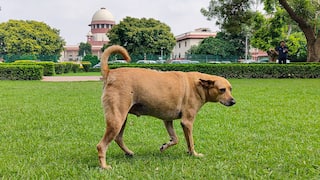Wife Asking Her Hungry Husband To Wait For Food Not 'Grave Provocation': Orissa HC Upholds Murder Conviction
According to case details, Jena returned home and asked his wife to serve him food. The wife asked him to wait for sometime as the preparation was still underway. Enraged by her response, he assaulted his wife with katuri.

A wife asking her hungry husband to wait for some time to have food is not grave and sudden provocation which would lead him to murder her, the Orissa High Court had to observe while dealing with a murder case.
A bench of Justice Sangam Kumar Sahoo and Justice Chittaranjan Dash in an October 28 made these observations while upholding conviction of a husband for murdering his wife.
The court made the observation while rejecting the argument by the husband's lawyer that it would be a case of culpable homicide not
amounting to murder as the husband acted on grave and sudden provocation by wife.
The court clarified that grave and sudden provocation is a mixed question of law and facts. Exception 4 to section 300 of I.P.C. states that culpable homicide is not murder if it is committed without premeditation in a sudden fight in the heat of passion upon a sudden quarrel and without the offender having taken undue advantage or acted in a cruel or unusual manner.
"Neither there is any quarrel nor fight in this case. A housewife cannot be said to have caused grave and sudden provocation to her hungry husband when she requests him to wait for a while as the preparation of food is under process. It is clear in this case that on the day of the incident nothing had happened to cause sudden provocation which was grave enough to make the appellant lose his balance of mind and assault mercilessly to his helpless wife in front of his minor daughter," the order read.
Raikishore Jena had appealed for relief from the trial court order that had convicted him for murder of his wife.
According to case details, Jena returned home and asked his wife to serve him food. The wife asked him to wait for sometime as the preparation was still underway.
Enraged by her wife's response, he brought a katuri (sharp weapon) and assaulted his wife repeatedly on vital organs like head, face, neck, ear etc. The wife died on the spot.
The trial court convicted him based on evidence of his minor daughter, the post-mortem report and testimony of the medical officer.
“The appellant might have been hungry when he returned from the field and it is said in Panchatantra Verse 4.16 that 'Bubhuksitah Kim Na Karoti Papam i.e. a hungry person can commit any sin' and Jean de La Fontaine quotes, 'a hungry stomach has no ears', but the manner in which the appellant reacted and brought the 'katuri' from inside the house and assaulted the deceased on the vital parts of ger body like face, head, neck, ear etc., and caused as many as nine numbers of extensive cut injuries which were sufficient in ordinary course of nature to cause death, show his intention to commit the murder,” the court order read.
Related Video
Breaking News: Maharashtra Politics Shifts: Congress Suspensions Boost BJP Ahead of Local Body Polls





































